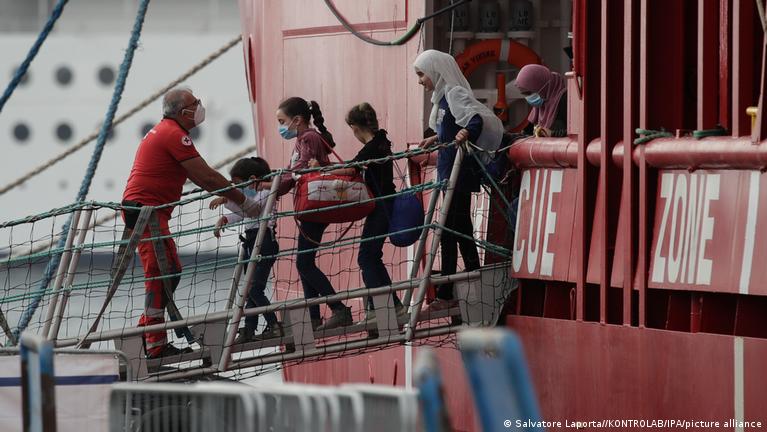
More than 1.1 million people applied for asylum in the bloc in 2023, just under the levels of the 2015 refugee crisis.
The European Union received the highest number of asylum applications since the 2015-16 refugee crisis in 2023.
More than 1.14 million people filed applications for international protection in the European bloc in 2023, a report by the European Union Agency for Asylum (EUAA) published on Tuesday showed. The data illustrates the growing pressure on the bloc from increased war on its doorstep and threatens to add to the traction of nationalist politics.
The 2023 figure represents an 18 percent increase compared with the previous year. It is the highest since 2015-16 when 1.3 million and then 1.19 million people sought refuge in the EU.
The number one destination last year remained Germany. Syrians continued to lodge the most applications, with Afghans still the second-largest applicant group.
Shifting trends
Still, the report also highlighted some shifting trends.
Although the number of 2023 asylum applications was below the 2015-16 levels, the effect of increased levels of violence and warfare on the EU’s doorstep is clear.
The 1.1 million asylum applications came on top of refuge given to 4.4 million Ukrainians. Fleeing Russia’s invasion, Ukrainians do not need to formally apply for international protection in the bloc.
The report also noted an increase in requests by Palestinians towards the end of the year, following Hamas’s attack on Israel in October, which killed more than 1,100 people and saw about 240 taken captive.
The assault has triggered a brutal response, with Israeli forces killing more than 29,000 people in Gaza. The conflict has also unleashed tension and violence in the occupied West Bank, and further across the region.
Syrians submitted 38 percent more applications in 2023 compared with the previous year, although this represents just under half of applications lodged in 2015 when Syria was embroiled in a brutal civil war.
Still, last month, Frontex, the EU border protection agency, also registered the highest rise in irregular border crossings since 2016.
Nationalist cause
The growing number of asylum seekers is likely to further inflame debates across European countries, where nationalist parties and far-right governments have long been riding public discontent over migration policies.
In a bid to diffuse the tension, the EU pushed through a landmark agreement in December on new rules designed to share the cost and work of hosting migrants more evenly, and to limit the numbers of people coming in.
However, seeking to continue to benefit, nationalists insist that the new rules do not go far enough.






